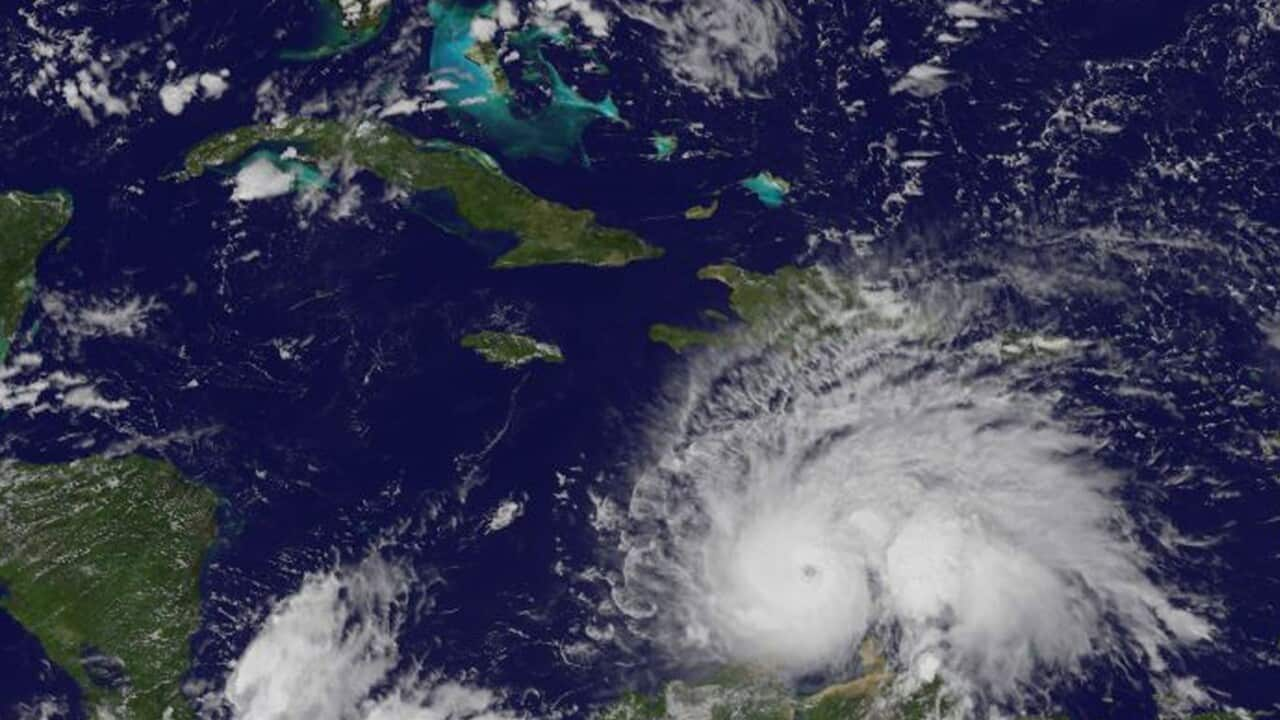Hurricane Matthew took aim at densely populated Haiti and Jamaica on Monday, packing winds that could sweep away flimsy buildings and bringing torrential rain that could trigger deadly landslides and floods.
As the powerful storm churned north, officials in both countries scrambled to protect buildings and move people out of danger zones to shelters.
Jamaica started warning people to begin storm preparations on Thursday, but many people living on cays -- tiny islands -- off the coast of the main island "said they would rather stay to protect their interests," Minister of Local Government Desmond Mackenzie told reporters.
He said the Jamaican Defence Force tried to bring them to the mainland, but they refused and dug in.
There was no use risking lives trying to rescue them, Mackenzie said.
"No turning back now. It is a matter of how long we have to wait this out," he said.
Briefly a furious Category 5 hurricane late Friday, Matthew remains a still-dangerous Category 4.
At 0900 GMT the center of Matthew was located 290 miles (470 kilometers) southwest of Port-au-Prince, with lashing top wind speeds of 145 miles per hour, the US National Hurricane Center said.
The storm was creeping forward at six miles (nine kilometers) per hour up from the Caribbean coasts of Colombia and Venezuela.
Matthew is forecast to sail between Haiti and Jamaica on Monday, dumping heavy rain across the region.
It is expected to continue north, tearing across southern and eastern Cuba between Monday and Tuesday as it marches toward the Bahamas.
Forecasts predict the hurricane will dump 15 to 25 inches (40-60 centimeters) of rain over southern Haiti with possible isolated maximum amounts of 40 inches.
"This rainfall will likely produce life-threatening flash floods and mudslides," the NHC warned.
Haiti, Jamaica, Cuba prepare
Thousands are still living in tents in Haiti after the country's massive 2010 earthquake. Erosion is also especially dangerous in Haiti because of high mountains and lack of trees and bushes in areas where they have been cut for cooking.
More than 500 people were evacuated Sunday as a precaution from Jeremie, in the southwestern part of the country. Some of them were reluctant to leave, said civil defense chief Marie Alta Jean-Baptiste.
"My countrymen, do not be stubborn, do not say 'God is good' and will take care of you," interim president Jocelerme Privert said in an address to the nation.
"The dangerous areas will be evacuated. We have no interest in risking your lives," he said.
The poorest country in the Americas is home to almost 11 million people, many living in fragile housing.
In Jamaica, minister McKenzie said that the army and military reserves were called up to help deal with hurricane damage.
Buses were also being sent to flood-prone areas to move residents to shelters.
US embassies in Jamaica and Haiti were set to close Monday and Tuesday due to the storm.
In Cuba, President Raul Castro traveled to the southeastern city of Santiago to oversee emergency operations.
Matthew had the potential to become a storm for the ages, he warned residents.
"This is a hurricane it's necessary to prepare for as if it were twice as powerful as Sandy," the Cuban leader said, referring to the megastorm that hit with massive destructive force in 2012.
At the US naval base in Guantanamo Bay, Cuba, located in the area where Matthew is expected to cross, a mandatory evacuation was ordered for all non-essential personnel and family members.
America's Accuweather website warned meanwhile that Matthew could hit the US East Coast around midweek.
READ THIS STORY TOO

Category 5 hurricane Matthew nears Jamaica
